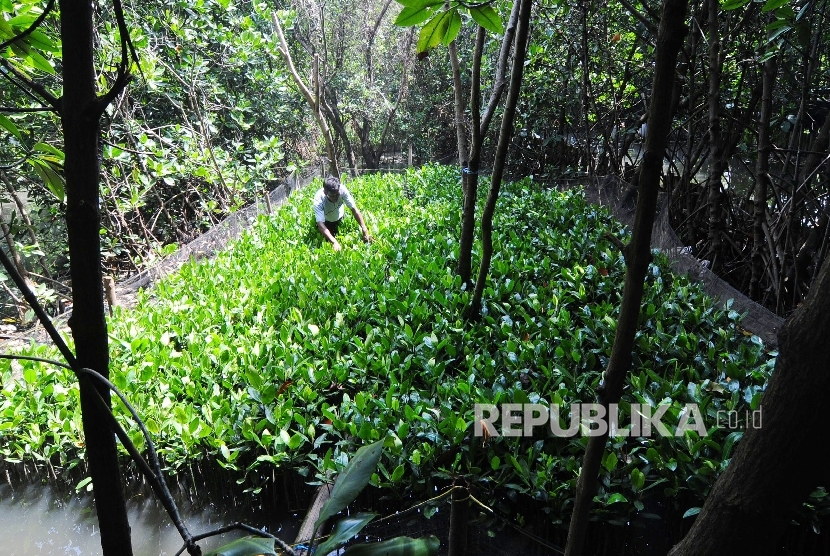REPUBLIKA.CO.ID, BENGKULU -- Dozens of college students of the Bumi Rafflesia Student Association planted hundreds of mangrove, sea almond, and casuarina trees in the coastal areas of Bengkulu City, Bengkulu Province.
"Mangrove planting is a testament to our concern and efforts to preserve the coastal environment in collaboration with several communities and graduates from the Bogor Agricultural Institute," Chairman of the Bumi Rafflesia Student Association Muhammad Khaisusabilillah stated here during the mangrove planting activity in Jenggalu Estuary, Bengkulu City, on Thursday.
The associations chairman noted that Bengkulu Citys Mangrove Community had also participated in the planting activity in order to strengthen the coastal defense to fight the threat of erosion.
Khaisusabillah remarked that the mangrove ecosystem was a forefront habitat to resist soil erosion, and other varieties, such as ketapan and casuarina trees, which functioned as windbreakers.
"There are certain zones with different functions, but mangroves play a leading role in reducing soil erosion," he emphasized.
Khaisusabillah hoped that the mangrove-planting activity will be conducted by other groups, so more people would play an active role in preserving the coastal environment.
Some 200 ceriops tagal along with 200 casuarina and sea almond trees were planted along the coastal area, Coordinator of Bengkulu Citys Mangrove Community Riki Rahmansyah affirmed.
"Some 400 mangrove trees were planted to make the coastal area of Bengkulu city greener and to particularly reduce the rate of coastal erosion in the area," Rahmansyah pointed out.
The coastal area of Bengkulu Province is prone to erosion and rising sea levels. Therefore, the mangrove habitat in the area should be preserved to resist erosion, Rahmansyah noted.
The mangrove ecosystem in Jenggalu Estuary is one of the preserved habitats as a part of the Pantai Panjang Natural Park that is managed by the Natural Resources Conservation Center of Bengkulu Province.


